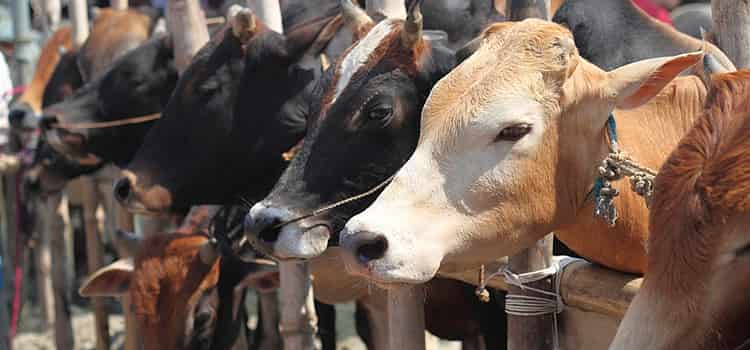Article 48 of the Constitution
Posted On : June 26, 2020

Table of Contents
Article 48 of the Constitution lays down that “The State shall endeavor to organise agriculture and animal husbandry on modern and scientific lines and shall, in particular, take steps for preserving and improving the breeds, and prohibiting the slaughter of cows and calves and other milch and draught cattle”. The existence of such a provision has always been controversial and debated upon as many believe that it goes against the secular nature of the Constitution and to fully understand what this article mean we must look at history and how it has been interpreted by the Courts, what the actual intention behind this Constitutional provision was and how it has evolved.
On examining the Constitutional assembly debates, we find that the arguments made for this provision to be included in the Constitution were on economic ground and were also substantiated through religious claims. Though the petitioners asking for this amendment wanted it to be fundamental right but could not go through with it as they only apply to human beings and not animals. It was subsequently framed as a Directive Principle of State Policy and was left for the executive to act upon according to the political situation of the country. It should be noted that the Agriculture and maintenance of stock as a subject comes under the State list in the Seventh Schedule in the Constitution so the power to frame laws reside only with State government.
The Supreme Court in 1958 in the Mohd. Hanif Qureshi v. State of Bihar (1958 AIR 731) case ruled that ban on slaughter of cows and calves is justified only till they are of milk producing age and ban on slaughter of bull or bullock is justified only till they can used for draught purposes.
In 1996, the Supreme court in Hasmattullah vs State Of Madhya Pradesh And Others (AIR 1996 SC 2076), ruled that a bull or bullock older than 16 years cannot be used for draught, agricultural or breeding purpose so it is unjustified to ban the slaughter and it violate the right to trade and profession.
In 2005, The Supreme Court in State of Gujarat Vs. Mirzapur Moti Kureshi Kassab Jamat and Others ((2005) 8 SCC 534) stated that the use of the words ‘milch’ and ‘draught’ in the provision were used to denote what the cattle is used for and not their age and banned the slaughter. The Supreme Court also stated that even when the cattle start to get old, it is wrong to deem them useless as they could still be used for production of manure, biogas, and fuel.
Now the question is how far is the article 48 of the Constitution practicable?
The Union Government does not have power to enact laws in accordance with Article 48 as the agriculture and the “preservation, protection and improvement of stock” comes under the State List under the Seventh Schedule in the Constitution. The State government can make laws and each state has their own approach to regulate the conditions for the slaughter of cattle. Some states allow the slaughter of every type of cattle while some ban the slaughter of cows but allow the slaughter of bulls, bullocks, buffalo, etc after getting a “fit-for-slaughter” certificate.
A total ban on cattle slaughter will have huge economic ramifications as it will lead to a decline of a large part of the meat processing and export industry and other industries such as tanning and curing leather and curtail supply to leather goods industry. It will also leave thousands of people jobless and business destroyed, most of which will be Muslims and Dalits which will only add onto their insecurity and vulnerability.
The ban will lead the customers of buffalo meat which is one of the most inexpensive meat available to shift to different kind of meat which would increase its price. The prices of milk would also go up as the farmer would now have to take care and feed unproductive animals until they are of old age.
According to economist Vikas Rawal, the fodder and water available in the country right now would not be enough to feed the cattle due to the population growth after the ban. The Animal Husbandry budget required after the ban would even exceed the defence budget right now.
Use and Importance
Indian economy mainly depends on agriculture so the Article 48 can be used to face the fears of drought, crop failure and unemployment. Cows and other animals were included in this article as the best alternative available in case of a drought or crop failure would be dairy farming. The value of dairy products will be immense in case of paucity of food as exporting of these products would return considerable profit. Hence the power to make laws according the Article 48 lies with the state to ban the slaughter as and when necessary and required according to their own State’s agricultural situation.
To conclude, it is important to note that a total ban on cow slaughter all over the country will not be feasible as there are huge economic implications of such a ban as it will lead to large number of job loss. It should also be noted that India is a very diverse country where people have different food and eating habits in different states. To enforce such kind of ban should be made keeping in mind these eating habits as it is important to maintain the concept of “unity in diversity”. Such a ban should only be made when it is necessary for the economy and the agricultural situation of the state.























